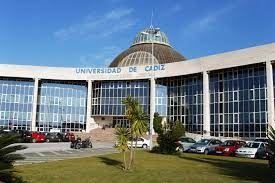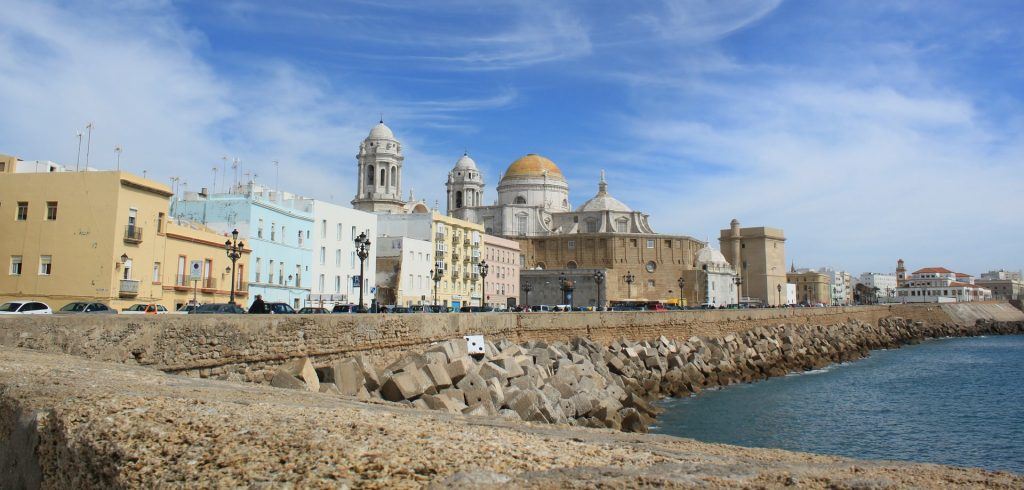 The purpose of the ECREA is to provide a supportive international setting where doctoral students can present their ongoing work, receive feedback on their PhD-projects from international experts and meet students and academics from other countries. However, pandemic situation has canceled the 2020 edition and local organisers (University of Tartu, Estonia) were forced to change the unique physical meeting to online format.
The purpose of the ECREA is to provide a supportive international setting where doctoral students can present their ongoing work, receive feedback on their PhD-projects from international experts and meet students and academics from other countries. However, pandemic situation has canceled the 2020 edition and local organisers (University of Tartu, Estonia) were forced to change the unique physical meeting to online format.
University of Cádiz, oganisers for 2021 and 2022, are facing the same challenge - Summer School 2021 will take place online. What do they plan? And what are the main pros and cons of the online meetings? We asked Miguel de Aguilera and David Selva.
Why did you decide to organize Summer School 2021?
There were several reasons that led us to organize it. In the first place, doctoral studies are the most attractive stage of university education, since the students are already mature in their knowledge and in their desires, and seek to achieve the highest degree that the university can offer. It is especially attractive to help in the research training of doctoral students enrolled at universities throughout Europe, who develop a set of varied and interesting research. We love organizing events, and this is especially motivating.
In addition, we coordinate, together with other colleagues from other universities, an interuniversity doctorate program. It offers a joint training from four Spanish universities (the universities of Cádiz, Málaga, Seville and Huelva) and is made up of a group of more than 350 active doctoral candidates from more than twenty countries (from Europe, America, Africa and Asia), especially Spanish speakers. We find it very interesting and convenient to connect this community of researchers with a broader community of researchers from Europe and other nationalities.
What is, according to you, the main goal and purpose of the summer school?
In this Summer Doctoral School, everything will revolve around the doctoral students. They should be able to improve their training by coming into contact with more methodological approaches than they usually know. They should get used to certain common scenarios in scientific research and communication, such as presenting their research to other researchers and discussing it with them, knowing what other researchers are doing in nearby fields of interest, or getting in touch with colleagues from other countries.
The plan has changed and you are forced to switch to the online version. What is the most challenging part of the process?
The special time that we have been living for more than a year has meant that direct social interaction has been reduced to a minimum. And, although it seems that the end of this pandemic is closer, out of prudence we have chosen to maintain a virtual school, not face-to-face, this year. The main loss for students is the lack of direct interaction with other students and with the participating lecturers. But the ECREA Summer School is going to make a special effort to organize an attractive and enriching program. It will facilitate the relationship between the participants as much as possible.

Are there any pros of the online version?
During this special year, we have all become accustomed to interacting with others at a physical distance, through screens, and accessing knowledge through them. We all know the downsides, but there are some obvious advantages too, such as the time that is avoided in commuting, the comfort represented by accessing knowledge from our own home, or the reduction of expenses. But there are others that are less obvious, such as the ease we have found in order to attend scientific events that take place in different parts of the World. That is surely the greatest advantage: accessing interesting knowledge freeing us from spatial and temporal conditioning. Anyway, we are confident that the 2022 Summer School will be able to be held physically in the city of Cádiz!
What are your plans for 2021 (or 2022)? Do you want to add other new formats, structure of feedbacks, topics?
Both the 2021 and 2022 Summer School will revolve around students, as true protagonists of their training process. We will seek that the students present their research and enrich it with the comments of other researchers (doctors and doctoral students). In addition, there will be other sessions with leading European researchers: a keynote lecture and several short lectures on more specific topics and with active student participation. There will also be round tables and workshops on methodologies and scientific skills.
Next year students hopefully will arrive in Cadiz. What is the city like? And what about the University?
Cádiz is an incredibly beautiful city, with a very special charm. It’s very well-known as a tourist destination because to its beaches, its climate, its local festivals, its gastronomy and its important historical heritage. We think it is the perfect environment for a Summer School! As for the University of Cádiz, it is a public institution closely linked to its region (it has four campuses in different cities: Algeciras, Cádiz, Puerto Real and Jerez de la Frontera), but also with a strong involvement in the European university map. We are looking forward to welcoming students and lecturers from all over Europe and the World!